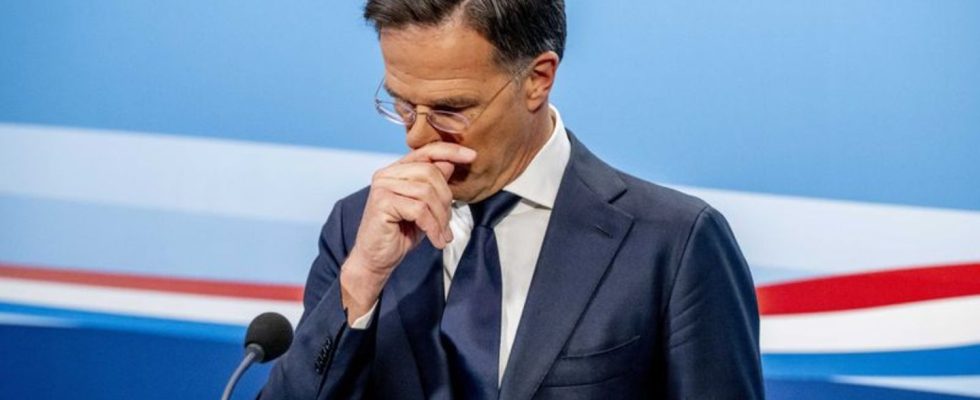migration
Netherlands: Rutte consults with König after government breakup
Mark Rutte, Prime Minister of the Netherlands, addresses the press after the weekly Council of Ministers. photo
© Robin Utrecht/ANP/dpa
When the Dutch king interrupts his vacation, the situation is serious: the government has collapsed in the dispute over migration policy. Prime Minister Rutte discusses the situation with the king.
Upon arrival at the royal palace and after the hour-long conversation, Rutte was taciturn when asked by reporters. “I won’t say anything about that, these are always confidential discussions.” The head of state had broken off his vacation and returned to the Netherlands at short notice to consult with the prime minister. It is not yet known whether the king will accept the government’s resignation. Rutte has so far left open whether he will stand again in a new election. According to observers, this will probably not take place until November.
The fourth government of the right-wing liberals has been in office since the beginning of 2022. Rutte himself has been Prime Minister of the Netherlands for almost 13 years.
The differences between the governing parties on the migration issue are irreconcilable, Rutte said on Friday evening. He regretted this step, but said it was “a political reality”. On Monday, Rutte will answer questions from Parliament on the government’s case.
Sticking point family reunification
The crux of the evening crisis meeting in The Hague was a restriction on the family reunification of refugees who are already in the country. Rutte’s right-wing liberal party VVD had called for the restriction. For other parties, the demand went too far.
The Netherlands is struggling with a mainly home-made asylum crisis: In order to save money, the government had cut staff and places in reception centers. The waiting time for the processing of asylum applications became longer and longer. In addition, the general misery on the housing market means that there are hardly any free places in the halls of residence.
In the midst of a major crisis of confidence in Dutch politics, the asylum dispute is also seen as a pretext for the government’s break-up. The four-party government hardly makes any decisions on many of the important issues that people in the Netherlands are passionate about.
This standstill is unlikely to be resolved before a new election is held – the fear was already voiced on Friday evening. In addition to migration policy, people in the Netherlands are also concerned about the housing shortage, the energy transition and climate policy. One of the major conflicts is the future of agriculture in view of announced environmental regulations.

